All Drive Transmission Blog
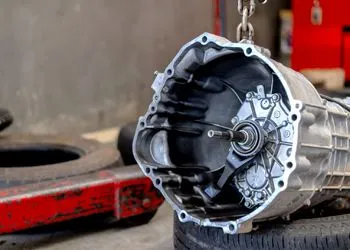
Transmission fluid plays a crucial role in keeping your transmission cool and lubricated, enabling smooth gear shifts and overall performance. However, leaks can develop over time, leading to low fluid levels, overheating, and potential transmission failure. Identifying the source of a leak early can prevent costly repairs and extend the life of your transmission. At All Drive Transmission, we provide expert transmission fluid leak repair in the greater Des Moines, IA area. Here are four common locations where transmission fluid leaks occur. Transmission Pan The transmission pan is one of the most frequent sources of leaks. Positioned at the bottom of the transmission, the pan holds a significant amount of fluid. Over time, it can develop leaks due to damage from road debris, corrosion, or loose bolts. If the pan is cracked, transmission fluid can seep out, forming a noticeable puddle underneath the vehicle. Transmission Pan Gasket The gasket that seals the transmission pan to the transmission housing is another common culprit of fluid leaks. This gasket can wear out over time, causing it to crack or become brittle. Improper installation, such as overtightening or misalignment, can also lead to gasket failure. A leaking transmission pan gasket often results in a slow but steady fluid loss. Replacing a worn-out gasket is a simple yet effective way to prevent leaks and maintain optimal transmission performance. Transmission Cooler Lines Transmission fluid is circulated through cooler lines to help regulate temperature and prevent overheating. These lines can develop leaks due to wear, corrosion, or damage from road debris. A leak in the cooler lines can cause fluid to drip along the underside of the vehicle, leading to low transmission fluid levels. Torque Converter The torque converter is a critical component that helps transfer engine power to the transmission. If it develops a crack, transmission fluid can leak out. Symptoms of a torque converter leak include slipping gears, overheating, and delayed acceleration. Addressing this issue as soon as possible can help prevent severe transmission damage. Transmission Fluid Leak Repair in Des Moines, IA When you need transmission repair in Des Moines and the surrounding area, contact All Drive Transmission at 515-384-0629 . Feel free to give us a call to make an appointment for transmission service in Des Moines!
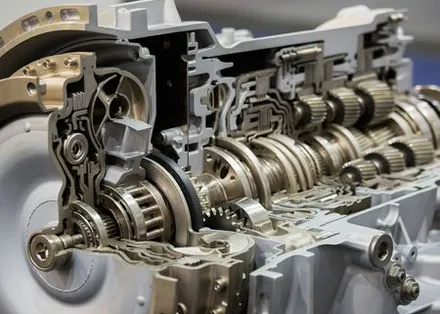
A healthy transmission plays a crucial role in ensuring the smooth and efficient operation of your vehicle. Whether you drive an automatic or manual, the transmission is responsible for shifting gears and delivering power to the wheels. When problems arise, they can quickly escalate into costly repairs if not addressed in time. At All Drive Transmission, we provide expert transmission repair in the greater Des Moines, IA area. Here are four common symptoms of transmission trouble. Slipping Gears One of the most noticeable signs of transmission trouble is gear slipping. If you experience unexpected changes in gear while driving or notice a lack of acceleration, it could mean that the transmission is struggling to stay engaged. This issue can be caused by low fluid levels or internal component failure. Ignoring slipping gears can lead to unsafe driving conditions and potential transmission failure. Delayed or Rough Shifting A healthy transmission should shift smoothly and without hesitation. If you experience delays when shifting gears or feel a jerking motion, it’s a sign that something is wrong. Automatic transmissions may hesitate before engaging a gear, while manual transmissions may feel difficult to shift. Low transmission fluid, worn clutch components, or internal damage could be the cause. Addressing this issue early can help prevent further wear and tear on the transmission. Unusual Noises A properly functioning transmission should operate quietly. If you hear grinding, whining, or clunking noises, it’s a strong indication of transmission trouble. Automatic transmissions may produce a whining sound due to fluid or torque converter issues, while manual transmissions could make grinding noises from worn-out gears or clutch problems. Any unusual noise should be checked by the mechanic to prevent more extensive damage. Transmission Fluid Leaks Transmission fluid is essential for keeping the internal components lubricated and cool. If you notice reddish fluid pooling under your vehicle, it’s a sign of a leak. Common causes include a damaged transmission pan and worn seals. Driving with low transmission fluid can lead to overheating and severe internal damage. Regularly checking for leaks and maintaining proper fluid levels can help keep your transmission running smoothly. Transmission Repair in Des Moines, IA When you need transmission repair in Des Moines and the surrounding area, contact All Drive Transmission at 515-384-0629 . At our local transmission shop, our experienced mechanics will make sure that your car is capable of shifting smoothly. Feel free to give us a call to make an appointment!
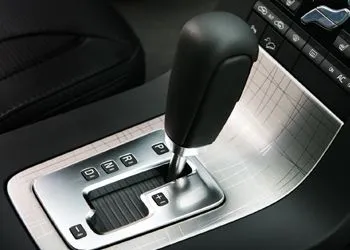
Your car's transmission fluid plays a crucial role in keeping the transmission system lubricated, cool, and functioning properly. When the fluid level gets too low, it can lead to serious mechanical issues and expensive repairs. At All Drive Transmission, we can expertly handle problems related to transmission fluid. Here are four warning signs that your transmission fluid is too low. Delayed Shifts or Slipping Gears If you experience delays when switching from park to drive or from one gear to another, your transmission may not be getting the necessary hydraulic pressure due to insufficient fluid. Slipping gears, where the vehicle unexpectedly shifts out of gear or struggles to stay in the correct gear, can also be an indicator. This happens because the transmission isn't able to create enough force to maintain proper function, leading to unpredictable and unsafe driving conditions. Unusual Noises from the Transmission If you start to hear strange noises—such as whining, grinding, or clunking—it could be due to a lack of transmission fluid. The fluid is essential for lubricating the various components inside the transmission. When it's too low, parts can begin to rub together, leading to increased friction and wear. If these noises are ignored, they can result in severe internal damage, requiring costly repairs or even a complete transmission rebuild. Overheating Transmission Transmission fluid is responsible for cooling the transmission by dissipating heat generated from friction and movement. When the fluid level drops too low, the system can quickly overheat, which may cause a burning smell. Overheating can lead to damage that shortens the lifespan of the transmission. If you notice a strong burning odor while driving, it’s essential to check the fluid level and refill it if needed to prevent serious damage. Fluid Leaks Under the Vehicle Low transmission fluid levels are often the result of a leak. If you notice reddish fluid pooling under your car, it’s a potential sign that the transmission system has a leak that needs to be addressed. The leak could be coming from the transmission pan, a worn-out seal, or a damaged transmission line. Driving with a fluid leak can quickly lead to dangerously low fluid levels, causing performance issues and risking transmission failure. Transmission Service in Des Moines, IA For transmission service in Des Moines and the surrounding area, contact All Drive Transmission at 515-384-0629 . Feel free to give us a call to make an appointment!
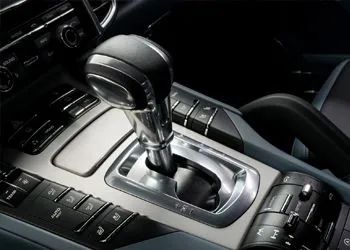
Keeping your automatic transmission healthy is essential for smooth driving. But like any complex system in your car, your automatic transmission can eventually develop problems. Identifying early warning signs can help save you from expensive repairs or even a complete transmission failure. At All Drive Transmission, our local transmission mechanics provide expert automatic transmission repair in the greater Des Moines, IA area. Here’s a look at four common signs of an automatic transmission problem. Delayed or Slipping Gears One of the most common signs of a transmission problem is delayed or slipping gears. If you notice hesitation when shifting from park to drive, or if the vehicle unexpectedly slips out of gear while driving, your transmission is clearly struggling. This issue often indicates low transmission fluid or worn-out gears. Unusual Noises Strange noises—such as whining, grinding, or clunking—can signal trouble within the transmission. These sounds might occur while shifting gears or even while the car is in neutral. Transmission components, like bearings or planetary gears, may be worn or damaged, leading to these abnormal sounds. Leaking Transmission Fluid Transmission fluid is essential for lubrication and cooling. If you spot reddish-colored fluid pooling under your car, it’s a clear warning sign of a leak. Low fluid levels can cause overheating and severe internal damage. Addressing leaks promptly is crucial to prevent further complications. Leaks often form due to cracked transmission lines and worn transmission pan gaskets. Burning Smell A burning smell while driving could indicate that your transmission is overheating. Overheating often results from low fluid levels, dirty transmission fluid, or excessive strain on the transmission system. Ignoring this smell can lead to significant damage and costly repairs. Automatic Transmission Repair in Des Moines, IA When you need transmission repair in Des Moines and the surrounding area, contact All Drive Transmission at 515-384-0629 . At our local transmission shop, our experienced mechanics will make sure that your car is capable of shifting smoothly. Feel free to give us a call to schedule an appointment!
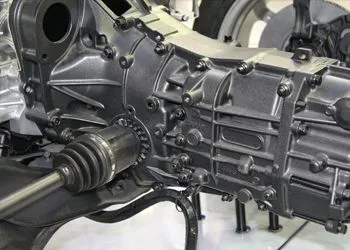
When transmission issues develop, they can become quite expensive to address. So it’s worth taking some basic precautions to keep your transmission in great shape. At All Drive Transmission, we provide transmission maintenance in Des Moines that helps to keep your transmission in optimal condition. Here’s a look at four tips for a healthy transmission. Check and Change Transmission Fluid Regularly Transmission fluid plays a vital role in lubricating and cooling the system. But as it ages, the fluid can degrade, becoming less effective at protecting the internal components. Checking the fluid level and condition regularly is essential to catch any issues early. If the fluid appears dark or has a burnt smell, it’s time for replacement. Following your manufacturer’s recommendations for fluid changes can prevent overheating and reduce friction, ultimately extending the lifespan of your transmission. Pay Attention to Driving Habits Your driving habits have a significant impact on the health of your transmission. Aggressive driving—such as sudden acceleration, harsh braking, and rapid gear shifts—can put unnecessary strain on the system. Instead, practice smooth and gradual acceleration and deceleration. If you drive a manual transmission, avoid resting your foot on the clutch pedal, as this can cause unnecessary wear. Use the Right Transmission Fluid Not all transmission fluids are the same, and using the wrong type can lead to damage. Always refer to your vehicle’s owner manual to determine the correct fluid for your specific make and model. Using the right fluid enables proper lubrication, cooling, and overall performance. If you’re unsure, consult the mechanic to make sure the fluid meets your vehicle’s requirements. Inspect and Maintain the Transmission System Routine inspections can help you detect early signs of transmission problems before they escalate. Listen for unusual noises like grinding or whining and pay attention to any delayed shifting or slipping gears. Regular maintenance can prevent minor issues from turning into major repairs. If you notice any warning signs, don’t delay in seeking professional help. Transmission Service in Des Moines, IA When you need transmission service in Des Moines and the surrounding area, contact All Drive Transmission at 515-384-0629 . Feel free to give us a call to make an appointment!


